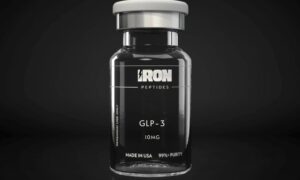Many people hold dear the goals of shedding unwanted pounds and reaching their ideal weight. Losing weight can improve quality of life, increase energy levels, and raise your confidence. However, the journey toward weight loss may prove challenging due to information overload, disparate food trends, and an ever-present desire to find quick fixes.
This article serves as your roadmap through the maze of weight loss. By understanding what happens during each stage, we hope you can set realistic expectations and develop effective strategies to experience lasting success.
Stage 1: Rapid weight loss
Beginning your weight-loss journey is often marked by rapid weight loss, which provides motivation. Yet you must understand exactly what’s happening during this phase in order to truly appreciate its effects and stay on course with weight-loss goals.
Contrary to popular belief, most of the weight lost during this stage doesn’t result from fat reduction but from the reduction of glycogen stores and water weight loss.
Here’s a rundown of what’s going on:
- Water weight: When you experience a caloric deficit, your body begins consuming glycogen stored as energy reserves in order to provide immediate energy needs. Each gram of glycogen stores three grams of water. As your glycogen reserves decline, so does its stored water weight, which leads to a rapid reduction in your scales.
- Glycogen depletion: Glycogen stores energy reserves in your liver and muscles. When food intake decreases or physical exercise increases, your body utilizes these reserves of energy as reserves to power its activity, contributing significantly to initial weight loss.
Keep in mind that any weight lost temporarily should not be seen as indicative of long-term results.
Stage 2: Slow fat loss
After the initial fast-loss phase is over, it’s time to enter a gradual but longer-lasting weight-loss phase. This is the time when your body begins to focus on burning body fat to generate energy.
Here’s the reason that the speed of weight loss slows:
- Metabolic adaptation: When losing weight, your metabolism adjusts naturally in response to losing it. This means burning off fewer calories at rest, which makes it a little more difficult to maintain the same level of weight reduction.
- Switching fuel sources: In the beginning, your body can use glycogen stores to fuel itself. As these stores deplete, the body becomes more dependent on burning fat to provide fuel, which pays off in slow but steady weight loss.
The good news is that even though the scale may not move as swiftly as it used to, this phase is a significant shift. Your body is now burning fat stores, which leads to a sustainable and longer-term strategy to lose weight.
Liv Pure is a term that has gained attention in the wellness and health community. It is often associated with a specific brand or product line aimed at promoting purity and natural health solutions. Products under the Liv Pure brand typically focus on using high-quality, natural ingredients to support overall well-being, detoxification, and vitality. The emphasis is on providing consumers with pure, effective supplements or health products that align with a clean and healthy lifestyle. Whether it’s through detox programs, nutritional supplements, or other health-focused offerings, Liv Pure aims to deliver products that help individuals maintain their health naturally and holistically.
Stage 3: Plateaus
A plateau occurs when your weight remains stagnant despite efforts made in terms of diet and exercise, yet your scale shows no indication of movement. While frustrating, this does not indicate failure. Here are some learn ways to overcome plateaus:
- Adjust calorie intake: Consider making slight reductions to daily calorie consumption to create a new deficit. Aim to cut back 50 to 100 calories each day over several weeks until the desired weight reduction occurs, and adjust further as necessary.
- Monitor your food consumption. Track the amount of food you consume over only a few days with an eating journal or calorie tracker app. This will help identify areas where adjustments are required. Be aware of hidden calories in drinks, food items, snacks, and condiments.
- Change up your exercise. Introduce new exercises and step up the intensity of workouts to push yourself physically and boost your metabolism. Try strength training, high-intensity interval training (HIIT), cycling, or bodyweight exercises for variety in your training regimen.
- Stay hydrated: Staying well hydrated can reduce appetites while simultaneously improving feelings of satisfaction. Try to drink at least eight glasses of water a day. You can also include unsweetened tea or black coffee as part of your hydration regime.
- Prioritize sleep: Strive for 7-8 hours of quality rest each evening. A restful slumber regulates hormones that influence appetite and metabolism, which in turn impact weight loss. Establish an ideal time and routine to improve the quality of your restful slumber.
Remember that a plateau is temporary and does not indicate failure. If you make adjustments to your eating and exercise routine, you will see the scale return to normal and achieve your weight-loss targets.
Stage 4: Maintenance
Congratulations on meeting your weight-loss target! Now, the question is how to keep it this way. Though this may prove challenging at first, your efforts will pay off in terms of improved health. Here are some tips:
- Plan your meals: One effective strategy for adopting a healthier diet and food selection is planning meals and snacks to avoid unhealthy options. Prepare more of your meals at home so you can control ingredients and portion sizes yourself.
- Prioritize protein: Proteins should be the cornerstone of meal selection. They help keep you feeling full for longer while supporting muscle maintenance. Be sure to include lean foods like fish, chicken, beans, and lentils in your daily diet plan.
- Mindful eating: Practice mindful eating by listening to your body’s cues of hunger and satiety. Try to eat slowly while enjoying each bite without distraction. This will help you control your appetite more efficiently and prevent overeating.
- Find enjoyable activities: Exercising should not be seen as an obligation; rather, it should be something enjoyable. Discover sports such as swimming, dancing, hiking, or team games that you will really enjoy. This will keep you motivated to keep exercising!
- Do not fear setbacks: Mistakes happen sometimes, and it is essential to get back into a healthy routine as quickly as possible if there has been a slip-up. Just because you had one unhealthy meal does not mean all your progress has been lost!
- Find support: Surround yourself with friendly people who will support the healthy lifestyle choices you make. Think about joining a weight-loss maintenance group or consulting with a registered dietitian to receive specific advice.
- Celebrate non-scale victories: Weight alone shouldn’t be used as the only indicator of change. Recognize achievements like increased energy levels, improved body composition, and more comfortable clothing as indicators of progress.
Weight loss vs. fat loss
Weight loss often ends in exclamations of “I lost weight!” But does that really reflect reality, or is something else causing the numbers on the scale to shift? Although “weight loss” and “fat loss” may sound similar, they each carry distinct meanings for health purposes.
Weight loss simply means reducing your total body weight. This could be attributed to various sources, such as water, muscle, bone mass, and fat. Fat loss, however, specifically targets body fat as the primary reason for weight loss.
In the end, losing fat is the most desirable objective for weight loss that is healthy. The loss of muscle mass could negatively affect your energy levels and metabolism.
Conclusion
Weight reduction should not be approached like an end goal; rather, it should be seen as a journey with various stages before reaching success. By understanding each of the phases and making healthy lifestyle changes that promote weight loss and goal attainment, you will reach your desired goal and enjoy its many rewards.
If you’re in search of individual guidance and assistance for fat loss west wood in New Jersey, we can help. At New Jersey Medical, we provide comprehensive programs and expert guidance to help you attain lasting weight loss. Contact us now, take charge of your health, and transform your life for the better.



































